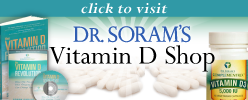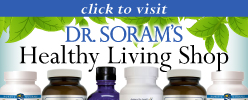A quick web search on the term “graceful aging” brings up phrases like:
“Combat the signs of aging…”
“Who said that we have to age…”
“Defy the aging process…”
More often than not, aging is viewed as something to be fought off for as long as possible. Regardless of how liberated we’ve become, many women and men still experience aging as a threat to their sense of self–worth and quality of life. It is pretty much expected that middle age will bring a “crisis” and far too often we hear seniors lament that “I thought these were supposed to be the golden years.” Whole industries are built on the attempt to stay young – from hair colors to face lifts to Viagra.
There is a place for all of these things, of course, but if your reaction to the aging process has you racing to beat time, take a deep breath, relax, and give yourself some space to shift into a different perspective on aging.
What if aging were equated with “getting better” rather than worse? What if you lived in a culture which reveres the elderly and views them as a repository of power and wisdom? What if it was understood that women really come into their greatness after menopause? Since how we age has so much to do with our attitudes and beliefs, such a shift in perspective could make a world of difference.







 Doesn’t it feel like summer is already blasting past?
Doesn’t it feel like summer is already blasting past? A healthy sex life is undeniably an important part of a healthy lifestyle, and there is, in fact, research to prove it. Assuming it is done with a partner you can trust, and no sexually transmitted diseases are involved, the benefits of sexual relations include:
A healthy sex life is undeniably an important part of a healthy lifestyle, and there is, in fact, research to prove it. Assuming it is done with a partner you can trust, and no sexually transmitted diseases are involved, the benefits of sexual relations include: Sodium nitrite (or sodium nitrate) is widely used as a preservative, antimicrobial agent, color fixative and flavoring in cured meats and other products.
Sodium nitrite (or sodium nitrate) is widely used as a preservative, antimicrobial agent, color fixative and flavoring in cured meats and other products. Though the thought of counting calories and measuring portions doesn’t bring smiles to most people’s faces, many people succumb to such dieting measures because they believe it will improve their health.
Though the thought of counting calories and measuring portions doesn’t bring smiles to most people’s faces, many people succumb to such dieting measures because they believe it will improve their health.
 A recent major article in the
A recent major article in the 
 Parents of teenagers are likely familiar with the array of media outlets — iPads, TV, cell phones, stereos, video games and computers — that many teens are glued to at all hours of the day.
Parents of teenagers are likely familiar with the array of media outlets — iPads, TV, cell phones, stereos, video games and computers — that many teens are glued to at all hours of the day.


